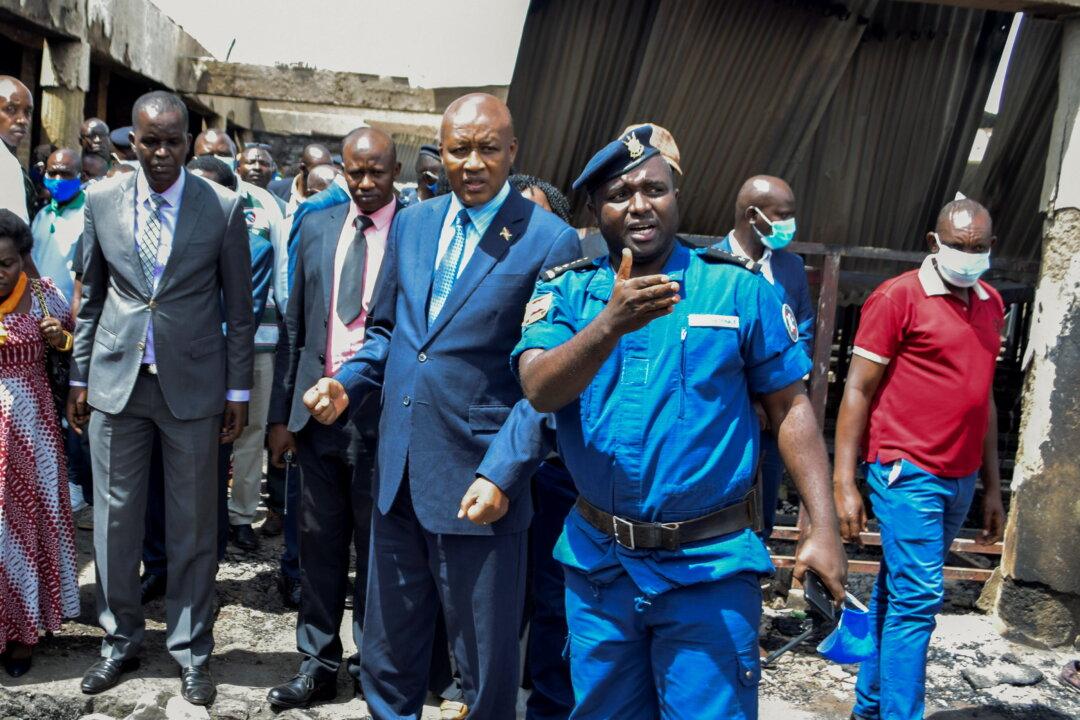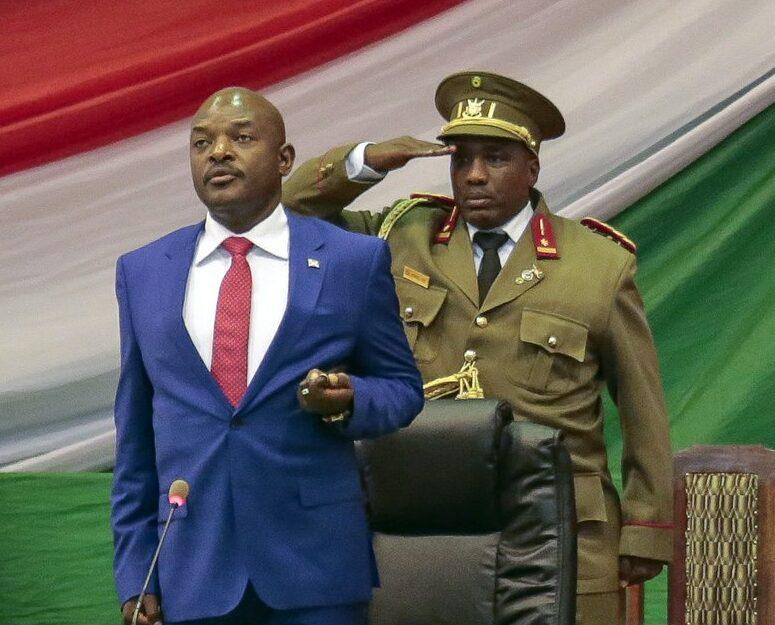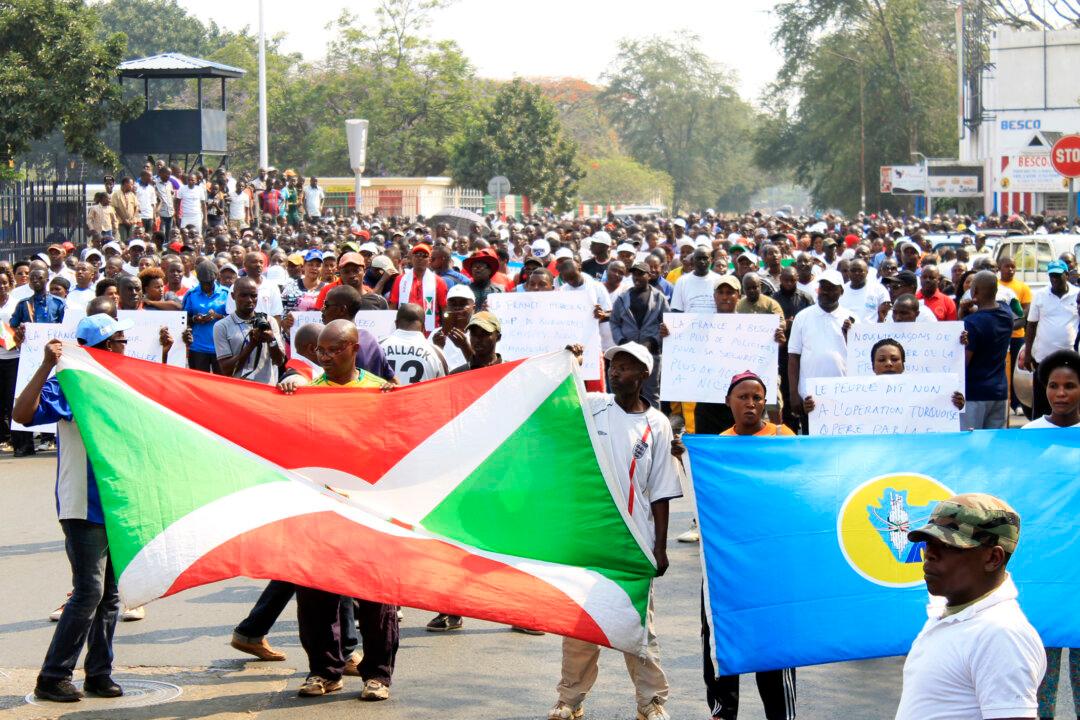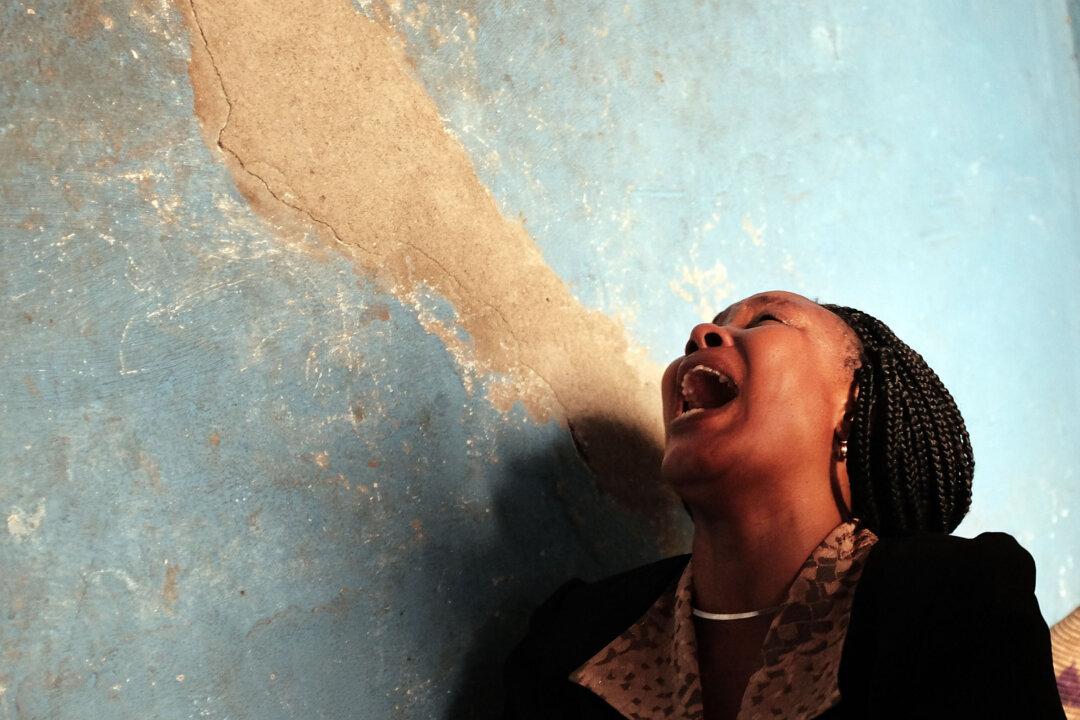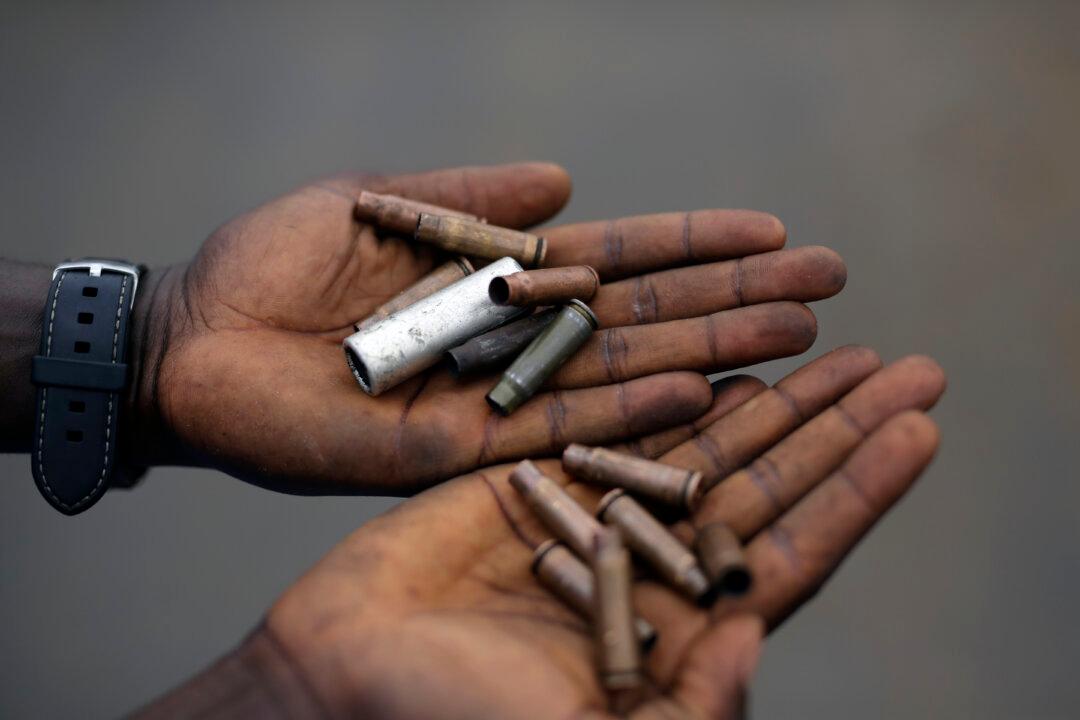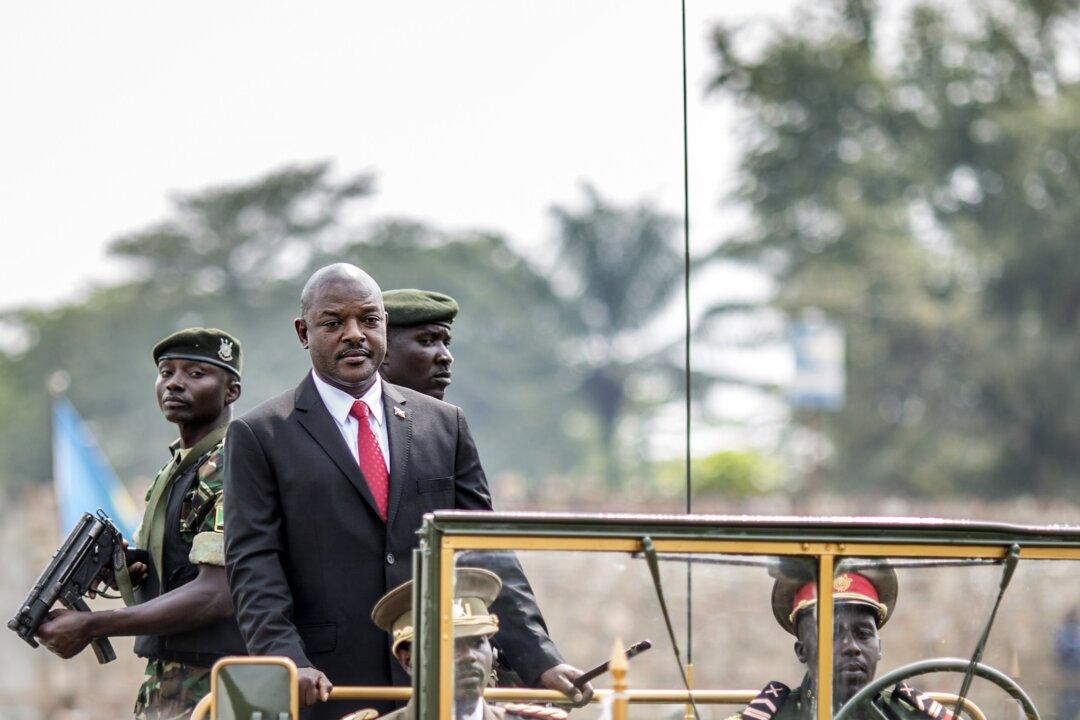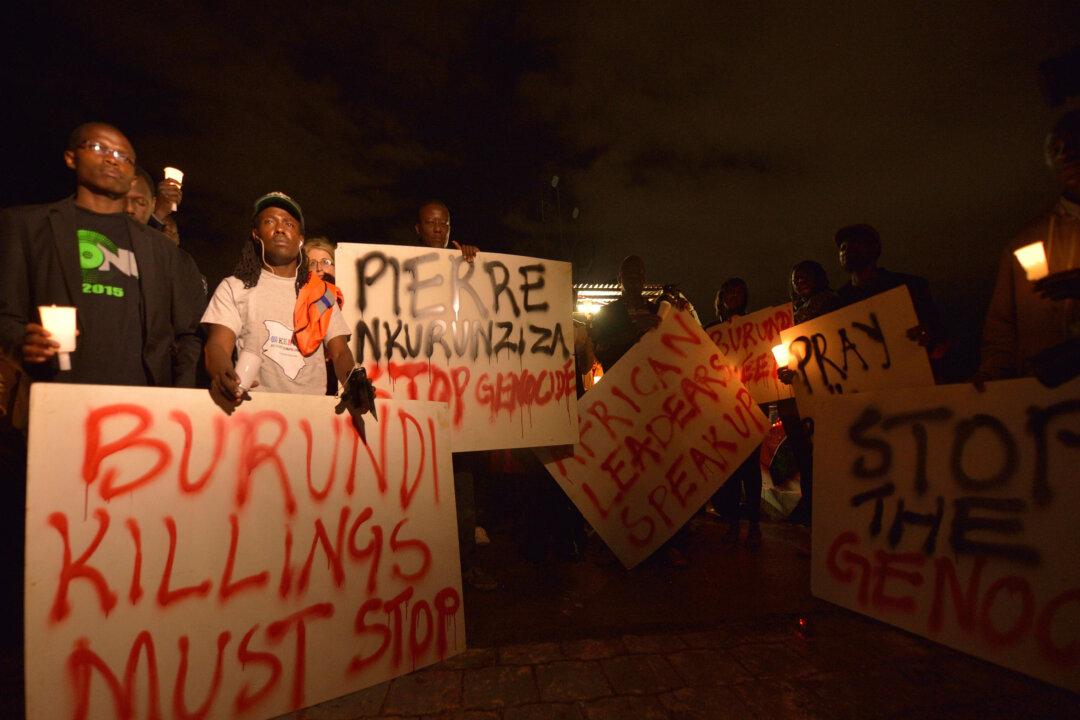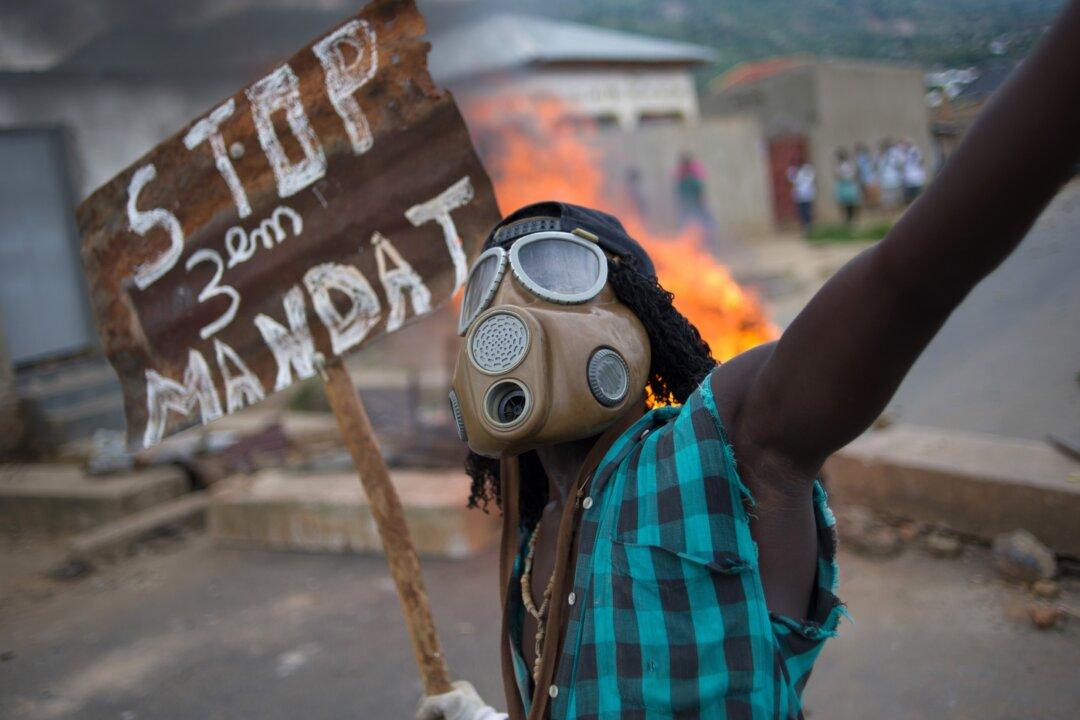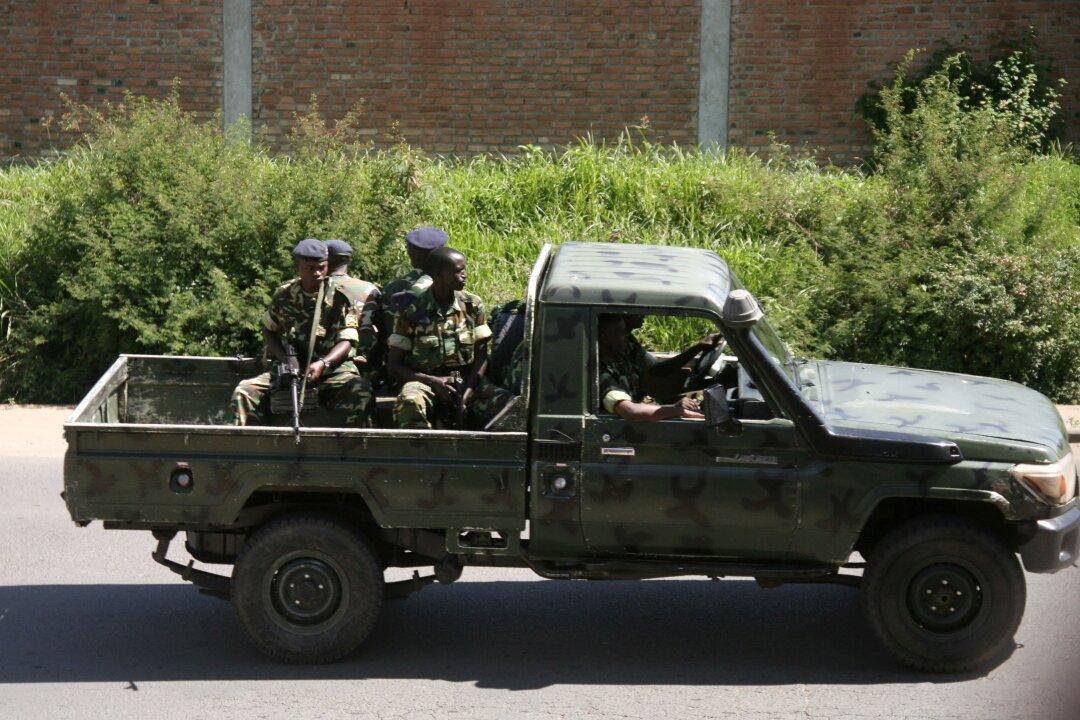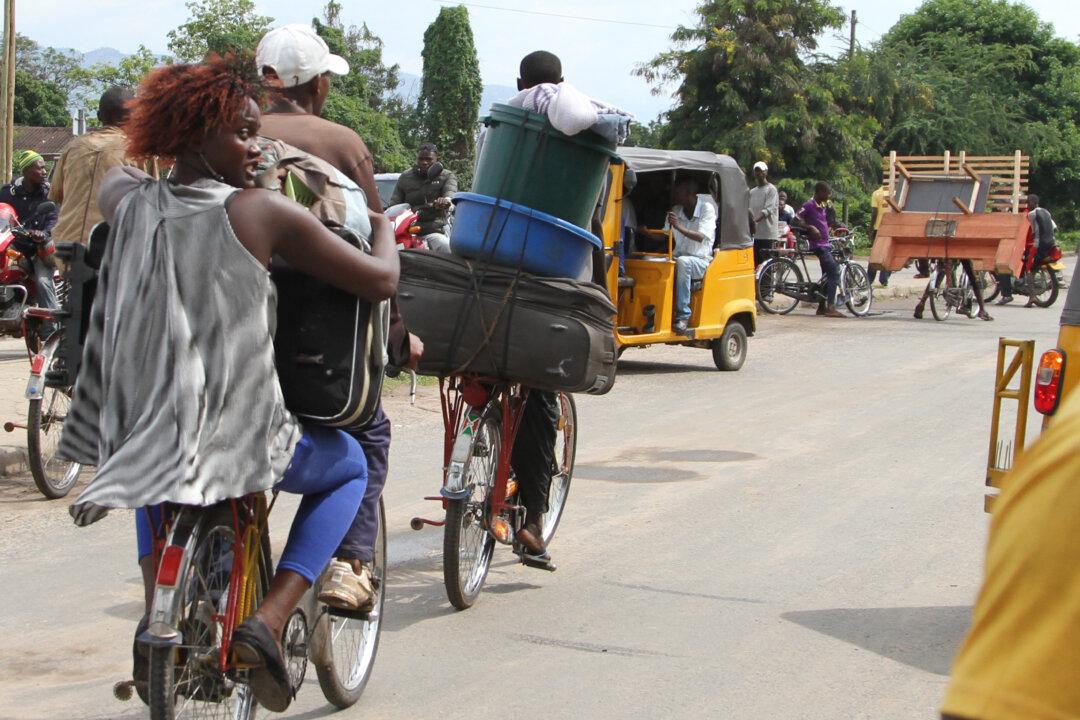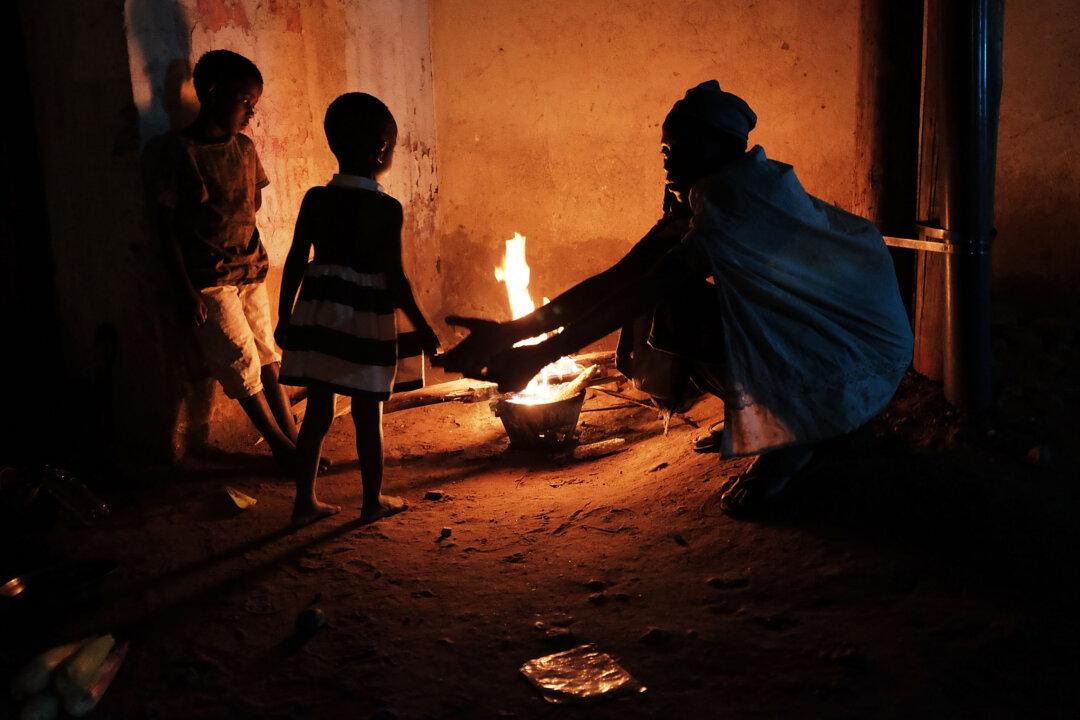Focus
Burundi
LATEST
Burundi’s Outgoing President Pierre Nkurunziza Dies, Wife Has COVID-19
Burundi’s President Pierre Nkurunziza has died of a heart attack at age 56
|
Burundi Demonstrators Protest Plan to Deploy UN Police
More than 1,000 people in Burundi participated in a government-backed demonstration in the capital, Bujumbura, Saturday to protest France’s proposal passed by U.N. Security Council to deploy U.N. police to the country.
|
Burundi Violence Has Created a Refugee Crisis in a Strained and Volatile Region
Burundi has been caught in a violent political nightmare since 2015.
|
Genocidal Rhetoric on the Rise in One African Nation
Located in central Africa, the small nation of Burundi is on the brink of civil war once again.
|
Burundi Rivals Gather in Uganda to Open Peace Negotiations
Representatives of Burundi’s government and opposition began a mediated effort on Monday to end the country’s political violence. Burundian President Pierre Nkurunziza, whose decision to run for election to a third term triggered the bloodshed, was invited but wasn’t present at the opening ceremony. Proper negotiations will start in January.
|
Burundi’s Fighting Sides to Meet in Uganda
Burundi’s fighting sides are to meet on December 28 in Uganda to discuss the country’s deadly political unrest, Uganda’s defense minister said Saturday.
|
UN Chief Warns That Burundi Is on the Brink of Civil War
Secretary-General Ban Ki-moon warned Wednesday that Burundi is on the brink of a civil war that could engulf the region.
|
African Union: Crisis in Burundi Is of Great Concern
A team sent to investigate the ongoing crisis in Burundi received reports of torture, arbitrary killings, targeted assassinations, arbitrary arrests and detentions which are of “great concern,” the African Union said Tuesday.
|
Why the World Can’t Stand by as Burundi Becomes a Failed State
The unfolding human tragedy in Burundi needs urgent intervention from the international community before it is too late.
|
Burundi: 87 People Killed in Friday Violence
A Burundian army official in says 87 people were killed in violence Friday when three military installations were attacked by armed men.
|
28 People Found Dead After Attacks in Burundi: Witness
Burundi’s political violence escalated Saturday as 28 people were found shot dead in three neighborhoods in the capital, a day after the government said an unidentified group carried out coordinated attacks on three military installations.
|
9 Killed in Attack on Bar in Burundi’s Capital
At least nine people were killed in an overnight attack at a bar in the latest violence in Burundi’s capital, witnesses said Sunday, as security forces went door-to-door to disarm civilians in neighborhoods seen as opposition strongholds.
|
Beyond Political Violence in Burundi: An Economy in Crisis
Burundi may have slipped off the world’s attention, but the crisis that erupted in May when President Pierre Nkurunziza announced that he would seek a third term is far from being resolved.
|
Small Burundi Could Ignite Big Conflict
Corruption, ethnic tensions, refugees, chaos could spread from small, poor Burundi after troubled election.
|
Burundi Tense Amid Gunfire After Killing of a General
Gunfire rang out in Burundi’s capital Sunday night following the killing of a feared military general who was a close ally of President Pierre Nkurunziza
|
Burundi’s Outgoing President Pierre Nkurunziza Dies, Wife Has COVID-19
Burundi’s President Pierre Nkurunziza has died of a heart attack at age 56
|
Burundi Demonstrators Protest Plan to Deploy UN Police
More than 1,000 people in Burundi participated in a government-backed demonstration in the capital, Bujumbura, Saturday to protest France’s proposal passed by U.N. Security Council to deploy U.N. police to the country.
|
Burundi Violence Has Created a Refugee Crisis in a Strained and Volatile Region
Burundi has been caught in a violent political nightmare since 2015.
|
Genocidal Rhetoric on the Rise in One African Nation
Located in central Africa, the small nation of Burundi is on the brink of civil war once again.
|
Burundi Rivals Gather in Uganda to Open Peace Negotiations
Representatives of Burundi’s government and opposition began a mediated effort on Monday to end the country’s political violence. Burundian President Pierre Nkurunziza, whose decision to run for election to a third term triggered the bloodshed, was invited but wasn’t present at the opening ceremony. Proper negotiations will start in January.
|
Burundi’s Fighting Sides to Meet in Uganda
Burundi’s fighting sides are to meet on December 28 in Uganda to discuss the country’s deadly political unrest, Uganda’s defense minister said Saturday.
|
UN Chief Warns That Burundi Is on the Brink of Civil War
Secretary-General Ban Ki-moon warned Wednesday that Burundi is on the brink of a civil war that could engulf the region.
|
African Union: Crisis in Burundi Is of Great Concern
A team sent to investigate the ongoing crisis in Burundi received reports of torture, arbitrary killings, targeted assassinations, arbitrary arrests and detentions which are of “great concern,” the African Union said Tuesday.
|
Why the World Can’t Stand by as Burundi Becomes a Failed State
The unfolding human tragedy in Burundi needs urgent intervention from the international community before it is too late.
|
Burundi: 87 People Killed in Friday Violence
A Burundian army official in says 87 people were killed in violence Friday when three military installations were attacked by armed men.
|
28 People Found Dead After Attacks in Burundi: Witness
Burundi’s political violence escalated Saturday as 28 people were found shot dead in three neighborhoods in the capital, a day after the government said an unidentified group carried out coordinated attacks on three military installations.
|
9 Killed in Attack on Bar in Burundi’s Capital
At least nine people were killed in an overnight attack at a bar in the latest violence in Burundi’s capital, witnesses said Sunday, as security forces went door-to-door to disarm civilians in neighborhoods seen as opposition strongholds.
|
Beyond Political Violence in Burundi: An Economy in Crisis
Burundi may have slipped off the world’s attention, but the crisis that erupted in May when President Pierre Nkurunziza announced that he would seek a third term is far from being resolved.
|
Small Burundi Could Ignite Big Conflict
Corruption, ethnic tensions, refugees, chaos could spread from small, poor Burundi after troubled election.
|
Burundi Tense Amid Gunfire After Killing of a General
Gunfire rang out in Burundi’s capital Sunday night following the killing of a feared military general who was a close ally of President Pierre Nkurunziza
|

